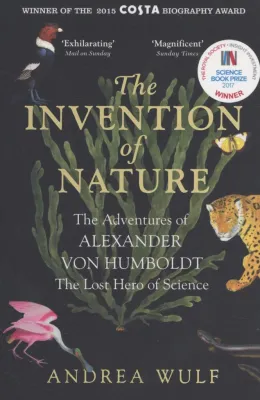Winkelwagen
Log in met je NBD Biblion webshop account om je winkelwagen te bekijken.
The invention of nature
Webshop onderhoud
Op woensdag 5 februari 2025 voeren wij onderhoudswerkzaamheden uit op onze webshop. Hierdoor zal de webshop tussen 12:00 en 14:00 uur niet bereikbaar zijn. Alvast onze excuses voor het ongemak.
Specificaties
Mediumsoort
Boek
ISBN
9781848549005
Jaar van uitgave
2016
Taal
Engels
Categorie
Non-Fictie
Leeftijdsgroep
Volwassenen
SISO
903.3 - Geschiedenis van de ontdekkingsreizen
Moeilijkheidsgraad
Moeilijk
Uitgever
John Murray
Aantal pagina's
XXI, 473 pagina's, 8 ongenummerde pagina's platen
Uitvoering boek
Garenloos
Hoogte
198
Breedte
128
Aantal banden
1
Bestelnummer
2018224869

